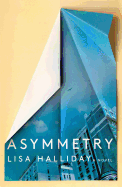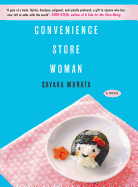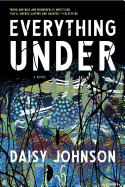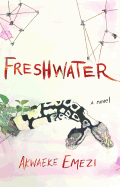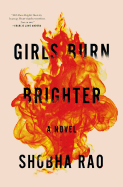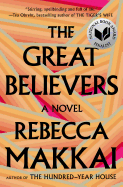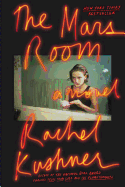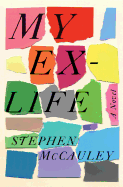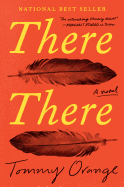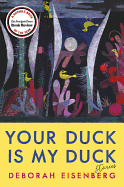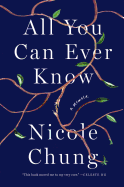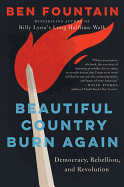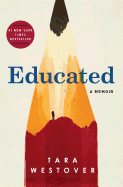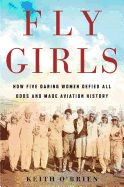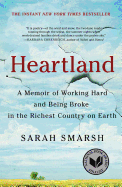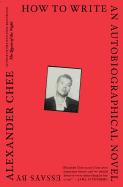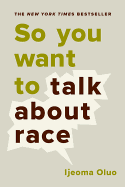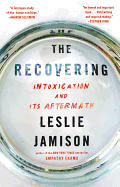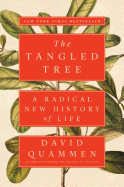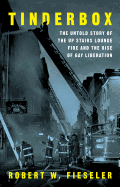Our 2018 Best Books of the Year
How many hours over the past year did Shelf Awareness staffers spend reading? And then arguing about our picks? It's a tough job, but somebody has to do it! Enjoy our picks for the Best Books of 2018 below.
Fiction
Asymmetry by Lisa Halliday (Simon & Schuster)
Convenience Store Woman by Sayaka Murata (Grove)
Everything Under by Daisy Johnson (Graywolf Press)
Freshwater by Akwaeke Emezi (Grove)
Girls Burn Brighter by Shobha Rao (Flatiron)
The Mars Room by Rachel Kishner (Scribner)
My Ex-Life by Stephen McCauley (Flatiron)
There There by Tommy Orange (Knopf)
Your Duck Is My Duck by Deborah Eisenberg (Ecco)
Nonfiction
All You Can Ever Know by Nicole Chung (Catapult)
Beautiful Country Burn Again: Democracy, Rebellion, and Revolution by Ben Fountain (Ecco)
Educated by Tara Westover (Random House)
Fly Girls: How Five Daring Women Defied All Odds and Made Aviation History by Keith O'Brien (Eamon Dolan/Houghton Mifflin Harcourt)
Heartland: A Memoir of Working Hard and Being Broke in the Richest Country on Earth by Sarah Smarsh (Scribner)
How to Write an Autobiographical Novel: Essays by Alexander Chee (Mariner Books)
The Recovering: Intoxication and Its Aftermath by Leslie Jamison (Little, Brown)
The Tangled Tree: A Radical New History of Life by David Quammen (Simon & Schuster)
Tinderbox: The Untold Story of the Up Stairs Lounge Fire and the Rise of Gay Liberation by Robert W. Fieseler (Liveright)
So You Want to Talk About Race by Ijeoma Oluo (Seal Press)
Our 2018 Best Books of the Year
Book Review
Fiction
Asymmetry
by Lisa Halliday
From the get-go, Whiting Award-winner Lisa Halliday signals that the world of her first novel, Asymmetry, will be more like that found behind Lewis Carroll's looking glass than the more prosaic one in front of it. Young editor Alice Dodge is sitting on a New York City park bench trying to read a dense book when Ezra, a famous novelist 50 years her senior, sits down beside her. She is drawn by his fame and conversational flair. From there, the novel takes off into a literary love affair.
Then, as if slipping through that looking glass, the novel shifts to the story of Amar Jaafari, the son of California immigrants from Iraq. He is trapped in customs detention at Heathrow trying to prove he is neither a threat nor a deadbeat. In recounting his relationships with family, faith and Iraqi origins, his story dips into the miasma of Iraq's post-Saddam politics and upheaval.
Despite its disparate pair of stories, Asymmetry adeptly concludes in a short coda interview with Ezra after he finally wins a Nobel Prize. He opines: "It is human nature to try to impose order and form on even the most defiantly chaotic and amorphous stuff of life.... Some of us wage war. Others write books." Deftly combining two stories that are distinctive in style and content, Asymmetry is a stellar piece of writing and a bold debut. --Bruce Jacobs, founding partner, Watermark Books & Cafe, Wichita, Kan.
Simon & Schuster,
$26,
hardcover, 288p., 9781501166761
Convenience Store Woman
by Sayaka Murata, trans. by Ginny Tapley Takemori
In the opening pages of Convenience Store Woman, Keiko Furukura is in her element, at work in the Hiiromachi Station Smile Mart. She knows what the displays need, how properly to promote the day's featured item, when the cold drinks need replenishing. She reads her customers expertly. She is a valued employee and good at her job.
Few situations in Keiko's life have been so easy. In primary school, she often responded to the world in ways others thought wrong: offering to cook and eat a dead bird on the playground, applying a shovel to the skull of a classmate in order to break up a fight. She wasn't a violent child; these just seemed like practical strategies. Life presented a series of puzzles she could not decipher, until the day she went to work at the Smile Mart.
Convenience Store Woman, Sayaka Murata's English-language debut, is a compelling novel about conformity in society, and the baffling rules applied in work and life. This brief, brisk novel is an engrossing adventure into an unusual mind. It's for all kinds of readers, for anyone who's ever questioned the status quo. --Julia Kastner, librarian and blogger at pagesofjulia
Grove Press,
$20,
hardcover, 176p., 9780802128256
Everything Under
by Daisy Johnson
Shortlisted for the 2018 Man Booker Prize, Everything Under, Daisy Johnson's first novel (following the story collection Fen), is a dreamy, twisty-turning tale set in modern Oxford but calling on mythology and upturning societal norms.
At the novel's opening, Gretel is a lexicographer who mostly keeps to herself, caught up in her mysterious past. She lives in a remote cottage with her mother, Sarah, whom she has recently found and brought home. Then time shifts, and for much of the book the reader sees Gretel's unusual childhood, and the long stretch of adulthood during which she searched for her missing mother.
Gretel grows up living with Sarah on a river, in a houseboat that never moves. They forage for food and remain apart from organized society. They make up their own language, words that make sense only to them. It is a watery world of shifting gender identities and slippery, changing rules, and in its midst, an enigmatic third character appears.
This is a complex plot with profound themes. Johnson's singular, hallucinatory storytelling is well up to her book's ambitious form. The result is spellbinding. --Julia Kastner, librarian and blogger at pagesofjulia
Graywolf Press,
$16,
paperback, 272p., 9781555978266
Freshwater
by Akwaeke Emezi
Akwaeke Emezi's standout first novel, Freshwater, is a riveting and peculiar variation on coming of age. Ada is a Nigerian girl born into great power. Her name invokes the serpent deity of an ancient pantheon, and beckons an Igbo god collective to inhabit her form. These ogbanje are the voices that narrate Ada's youth and blooming adulthood, holding their vessel captive to their whims and assuming control when necessary to protect her.
The girl's childhood is marked by an unstable home life and volatile parents that compound her inner torments. She immigrates to the United States for school, where she is introduced to an ongoing legacy of virulent racism. While Freshwater touches the many dark, complicated notes of a troubled adolescence, Emezi extrapolates their consequences into a deliriously metaphysical realm.
As enchanting as it is unsettling, Freshwater tickles all six senses. The chorus of voices narrating Ada's life achieves a remarkable balance between cruel machinations of cavalier deities and deep empathy for the distressed vessel they inhabit. But whether they are the source of Ada's problems or her buoy against them is one question that drives this refreshingly imaginative debut. --Dave Wheeler, associate editor, Shelf Awareness
Grove Press,
$24,
hardcover, 240p., 9780802127358
Girls Burn Brighter
by Shobha Rao
A devastating debut, Girls Burn Brighter is a testament to the strength of female friendship in the face of unimaginable trauma. The small Indian village of Indravalli has offered few comforts to young Poornima, who's been left under the command of her abusive father after the death of her mother. Her friendship with the brilliant, resilient Savitha is the only hope Poornima has for happiness in the future, particularly after she is betrothed to marry a man with a grudge against the world. But after a horrifying act of violence, Savitha is forced to run away if she wants to survive, leaving Poornima to spend her years searching for the friend who made life worth living.
Shobha Rao astounds in her debut novel, following the publication of her short story collection, An Unrestored Woman--not just with stunning prose, but with mastery of pacing, too. In Rao's hands the heavy, unrelenting subject matter, which might otherwise have been shattering for its raw honesty, is fluid and propulsive. The novel never loses sight of the two strong, sensitive souls at its center, and it leaves the reader breathless in the presence of their power. --Alice Martin, freelance writer and editor
Flatiron Books,
$25.99,
hardcover, 320p., 9781250074256
The Great Believers
by Rebecca Makkai
After her beloved brother Nico dies of AIDS in 1985, Fiona Marcus copes with her grief by becoming closer to his many friends in Chicago. Shell-shocked by the rapid progression of a new and mysterious virus that changes vibrant, young gay men into ghosts, the friends live in fear of their future while remembering those they loved in the past.
Fast-forward 30 years. By 2015, Fiona is divorced and managing a nonprofit store that benefits AIDS charities. Her estranged daughter, Claire, has gone missing but is believed to be living in Paris. Fiona flies to the City of Love and stays with an old friend from Chicago--someone who survived and documented the AIDS epidemic alongside her, complete with photographs and videos that are part of a new exhibit.
An astonishing layered and emotionally stirring novel, The Great Believers returns readers to a time when love meant fear, risk and death. With a narrative that seamlessly segues and connects time and decades, Rebecca Makkai (Music for Wartime) brilliantly captures a devastating era marked by political inaction and shock. Decades after society's collective memories of the epidemic have faded, Makkai's abundantly alive characters beg us to remember again. --Melissa Firman, writer, editor and blogger at melissafirman.com
Viking,
$27,
hardcover, 432p., 9780735223523
The Mars Room
by Rachel Kushner
Rachel Kushner (The Flamethrowers) paints a dark and gritty picture of the U.S. prison system and the larger, contemporary world in her provocative novel The Mars Room. The action is set at the fictional Stanville Women's Correctional Facility, in the remote Central Valley of California. A diverse cast of inmates--hardscrabble women who formerly lived on the margins of society, suffering poverty, abuse, neglect, drug addiction and sex exploitation--are forced to adapt and make a life inside prison walls.
The central protagonist is Romy Leslie Hall, a 29-year-old inmate and former lap dancer at the Mars Room, a notorious, seedy strip club in San Francisco. Romy is serving two consecutive life sentences for murdering a man who relentlessly stalked her. She has a young son, Jackson, who becomes entangled in the child welfare bureaucracy. Although prison separates Romy from Jackson for four long years, she goes to great lengths to track him down.
Romy's is just one of many stories in this complex, immersive novel. Supporting characters and their sordid proclivities and recidivism--along with subplots about an incarcerated dirty cop and a sensitive teacher at the prison--provide an unflinching look at brutality and power plays within the perimeters of razor wire--and beyond. --Kathleen Gerard, blogger at Reading Between the Lines
Scribner,
$27,
hardcover, 352p., 9781476756554
My Ex-Life
by Stephen McCauley
My Ex-Life by Stephen McCauley (The Object of My Affection) explores the relationship between a gay man and his ex-wife with wit and wisdom. David rents a carriage house with amazing views in San Francisco and enjoys his career, helping teens apply to colleges. But his partners has left him and his landlord is selling the house, which means David has to move.
In a seaside town on the East Coast, David's ex-wife, Julie, is in the midst of a messy divorce, her second husband threatening custody of their teen daughter, Mandy. Julie is renting out rooms in the house on Airbnb to make some extra money, but things are getting desperate. When she calls David, after 20 years apart, to ask him to help Mandy with her college applications, he jumps at the chance.
McCauley has a remarkable sense of humor and a talent for human insight. For instance, Mandy describes her friend like this: "Lindsay considered herself a 'romantic,' which meant she was a Disney princess who'd read her mother's copy of Fifty Shades of Grey." This fun, clever story about a postmodern permutation of family stands out for its keen wit and enduring warmth. --Suzan L. Jackson, freelance writer and author of Book By Book blog
Flatiron Books,
$25.99,
hardcover, 336p., 9781250122438
There There
by Tommy Orange
In Tommy Orange's brilliant debut novel, There There, 12 people, primarily urban Cheyenne, move toward convergence to attend a big powwow in Oakland--most eagerly, some warily. "We made powwows because we needed a place to be together. We all came... for different reasons. The messy, dangling strands of our lives got pulled into a braid... layered in prayer and hand woven regalia, beaded and sewn together, feathered, braided, blessed and cursed."
Tony Loneman begins the interwoven stories. He has fetal alcohol syndrome, which he calls the Drome. Dene Oxendene is recording urban Native stories. Edwin Black is biracial; he made it through grad school, writing his thesis on the influence of blood quantum policies on modern Native identity and literature written by mixed-blood Native authors. Opal Violet Victoria Bear Shield goes to the powwow to watch her young nephew, Orvil, who has learned to dance watching YouTube videos. Opal's sister, Jacquie Red Feather, a substance abuse counselor, is also on her way to the powwow, 10 days sober.
There There is a fierce story of despair, addiction, recovery and hope, with moments of sweetness and humor. Tommy Orange has written a bold, passionate book that stabs you in the heart. --Marilyn Dahl
Knopf,
$25.95,
hardcover, 304p., 9780525520375
Your Duck Is My Duck: Stories
by Deborah Eisenberg
Deborah Eisenberg (Twilight of the Superheroes) pushes the short story to new heights in this weirdly affecting collection. Your Duck Is My Duck begins with the titular story, in which a young painter is whisked off to an exotic island retreat, courtesy of a wealthy patron couple. Once there, she meets a genius puppeteer who stages revolution in his productions, not unlike the political tumult consuming the real-life island. In this way, the reader enters Eisenberg's quasi-farcical worlds, where biting satire meets heartbreaking pathos. She writes with an indirect, veiled structure, never revealing too much, letting readers piece together the catastrophes that always seem to be looming on the horizon.
Some stories revolve around family and other inextricable relationships. In "Taj Mahal," the grandson of a famous film director writes a biography of his grandfather and in doing so upsets a tight cadre of aged actors, who routinely meet to reminisce about better days, "waiting with patience and humility to be issued new roles." Eisenberg pulls off her uncanny narrative structures with panache. Rarely do short stories feel so full. Your Duck Is My Duck is both quirky and profound, brimming with the dangers and wonders of life. --Scott Neuffer, writer, poet, editor of trampset
Ecco,
$26.99,
hardcover, 240p., 9780062688774
Nonfiction
All You Can Ever Know
by Nicole Chung
Nicole Chung's All You Can Ever Know is a memoir of her experiences as a transracial adoptee and her development of a mature understanding of herself and of her adoptive and birth families.
Chung had loving adoptive parents who never discussed race with her, because they believed that was the right thing to do. As she grew older, the love and loyalty she felt for her parents coexisted with new realizations of what she had missed. Her childhood fantasies of her biological family were mingled with her sense of abandonment, and the fear that they had given her away because she wasn't good enough. When she became pregnant for the first time, she collected what fragments of information she had, and set out to contact them.
Chung creates a suspenseful story with her avalanches of questions and unexpected discoveries, and her hard-won insights into the nature of identity. She has many thoughts about adoption, but this is also an emotional and level-headed book about the rewards of questioning family expectations in order to come to terms with the complicated truth. --Sara Catterall
Catapult,
$26,
hardcover, 240p., 9781936787975
Beautiful Country Burn Again: Democracy, Rebellion, and Revolution
by Ben Fountain
A former attorney and author of the novel Billy Lynn's Long Halftime Walk, Ben Fountain dissects the 2016 United States presidential campaign in a series of passionate essays. Coupling historical context with current events, Fountain argues that the country is facing a deep existential crisis. He believes that only twice before in U.S. history--the Civil War and the Great Depression--has a crisis of this level occurred. And each time, "the United States has had to reinvent itself to survive as a plausibly genuine constitutional democracy." Fountain guides his readers chronologically from January through December, from the Iowa Caucuses through the weeks following the election. He attends rallies, the NRA convention, the parties' national conventions, taking a front-row seat to the events that define that extraordinary year. Along the tumultuous journey he delves into pertinent chapters of American history such as the Southern strategy, the Vietnam War, the Occupy movement and their relationship to the state of affairs in 2016.
His words are emotional and powerful. While Donald Trump and those who enable him are primary targets, no one escapes his criticism, including much of the American electorate. Beautiful Country Burn Again has the potential to arm the body politic with their greatest weapon--knowledge. --Jen Forbus, freelancer
Ecco,
$27.99,
hardcover, 448p., 9780062688842
Educated
by Tara Westover
Raised by deeply religious and survivalist parents on an Idaho mountain, Tara Westover's life was vastly different from other children's. At age seven, she was laboring in her father's junkyard, salvaging scrap metal and operating dangerous machinery. Nobody in the Westover family visited a doctor, relying instead on prayer and herbal concoctions to remedy even the most horrific and life-threatening injuries. Instead of attending elementary school, Westover was "educated in the rhythms of the mountain," with lessons consisting of her father's doomsday lectures about the evils of the "Illuminati" and the impending "Days of Abomination."
By using old textbooks, Westover taught herself trigonometry and science, relating complicated theories to the equations of her life. Her determined quest would lead her to entering a classroom for the first time at age 17 and, eventually, to earning a doctorate from Cambridge University. An astonishingly raw and explosive memoir, Educated is Westover's gritty account of how she exchanged an extreme world of faith, fear, abuse and obstacles for one defined by power, strength and resilience. --Melissa Firman, writer, editor and blogger at melissafirman.com
Random House,
$28,
hardcover, 352p., 9780399590504
Fly Girls: How Five Daring Women Defied All Odds and Made Aviation History
by Keith O'Brien
More than 80 years after Amelia Earhart's mysterious disappearance, she continues to hold a place among the world's most famous women. What isn't as well known is that Earhart was part of a group of brave, high-achieving and largely forgotten female pilots--fly girls.
A fly girl is "a term used in the 1920s to describe female pilots and, more broadly, young women who refused to live by the old rules, appearing bold and almost dangerous as a result." These fearless women, who came from vastly different backgrounds, included Florence Klingensmith, Ruth Elder, Louise Thaden and Ruth Nichols. Each saw flying as a chance to prove that women could compete equally in a high-stakes, life-or-death environment.
Journalist Keith O'Brien's (Outside Shot) compelling narrative soars as he explores the business of competitive air races in the 1920s and '30s, complete with promoters and wealthy investors who recognized that women pilots would generate intense interest. As they competed in the face of tragedy and discrimination, the female pilots learned the importance of keeping a united front and supporting each other. The bravery, courage and determination of the fly girls provides inspiration for modern times. --Melissa Firman, writer, editor and blogger
Eamon Dolen/Houghton Mifflin Harcourt,
$28,
hardcover, 352p., 9781328876645
Heartland: A Memoir of Working Hard and Being Broke in the Richest Country on Earth
by Sarah Smarsh
The election of Donald Trump helped expose the fault lines separating Americans who inhabit different regions and economic strata. But long before class was a subject of newspaper columns, it was fundamental to Sarah Smarsh's life. Smarsh, a fifth-generation Kansas farm girl who comes from a long line of teenage moms, explores her family's experience and her struggle both to honor and escape her roots in her first memoir, Heartland.
Now a journalist, Smarsh delves into the many factors affecting the United States' rural-urban divide: the "Reaganomics" policies of the 1980s, the rise of industrialized agriculture, the decline or disappearance of many industries that had long sustained Midwestern communities. She examines the challenges of being both poor and female through the histories of the strong women who raised her, each of them, including Smarsh, frequently ignored, undervalued or shamed by systems that permeated American life. In taut, lyrical prose, Smarsh blends personal and economic perspectives to show the challenges faced by the heartland and to insist on the region's dignity and worth. Searing, timely and blazingly eloquent, Heartland challenges readers to look beyond tired stereotypes of the rural Midwest and is a testament to the value (on many levels) of "flyover country." --Katie Noah Gibson, blogger at Cakes, Tea and Dreams
Scribner,
$26,
hardcover, 304p., 9781501133091
How to Write an Autobiographical Novel
by Alexander Chee
How to Write an Autobiographical Novel, an essay collection by novelist Alexander Chee, bears all the hallmarks of the writer's intelligence, curiosity and precision with language. In these 16 essays, Chee (Queen of the Night) delineates the creative and emotional journey of a half-Korean gay kid from conservative small-town Maine, who emerges as an important voice in American literature. Chee maps the relationship between identity, activism, writing and literary prestige. In a spirit of playful yet earnest self-interrogation, he picks at his own façade in the early stages of his career.
As much as Chee's essays exhume the autobiographical details of his life, collectively they're concerned with something greater than autobiography--the struggle and triumph of the novel. In the collection's titular essay, he explains that writing fiction is necessary "because the ways you are human are not always visible to yourself." Entertaining and illuminating, How to Write an Autobiographical Novel excites and inspires creative thinking. In equal measure, the collection's humanity and grace will tug the heartstrings of the general reader. --Scott Neuffer, writer, poet, editor of trampset
Mariner Books,
$15.99,
paperback, 288p., 9781328764522
So You Want to Talk About Race
by Ijeoma Oluo
If you want to understand and discuss race and racism, particularly in the U.S., this could be the how-to manual you've wished for. Ijeoma Oluo is a writer, editor and public speaker with years of experience in such conversations. She's persuasive, sympathetic, funny and very direct: "We have a real problem of racial inequity and injustice in our society, and we cannot wish it away. We have to tackle this problem with real action, and we will not know what needs to be done if we are not willing to talk about it." Some sections are addressed to white readers, some to people of color. So You Want to Talk About Race combines memoir, history and statistics to illustrate points. Oluo also provides lists of questions to consider alone or with others, and tips to "increase your chances of conversation success, or at least decrease your chance of conversation disaster."
Fear, she says, is a natural response to talking about race and racism in the U.S. However, "we have to let go of some of that fear. We have to be able to look racism in the eye wherever we encounter it." With her advice, it may be a little bit easier. --Sara Catterall
Seal Press,
$27,
hardcover, 256p., 9781580056779
The Recovering: Intoxication and Its Aftermath
by Leslie Jamison
While Leslie Jamison (The Empathy Exams) follows the recovery memoir's common arc in The Recovering, her scope is significantly broader. She draws on the stories of several others and their contributing social forces. The result is a staggering investigation into cultural assumptions about addicts, and a necessary critique of a literary scene that idolizes the drunken genius.
At the Iowa Writers' Workshop, Jamison contends with the legacies of literary lushes like Charles Jackson (The Lost Weekend) and John Berryman (The Dream Songs), among many other men who garnered reverence for their vices. Meanwhile, women such as Jean Rhys (Wide Sargasso Sea) and Billie Holiday (Lady Sings the Blues) drew only scorn for theirs. Alcoholics Anonymous becomes a touchstone for her while she peels back myths of alcoholism as a creative force and breaks through to something fresh.
More than most in the genre, The Recovering focuses on the aftermath--the frustrating realities and surprising joys of staying sober. Jamison emphasizes the perennial nature of recovery. Stability is indeed a humble, messy persistence within a culture that craves simple narratives about addiction and sobriety, genius and madness. --Dave Wheeler, associate editor, Shelf Awareness
Little, Brown,
$30,
hardcover, 544p., 9780316259613
The Tangled Tree: A Radical New History of Life
by David Quammen
In The Tangled Tree, popular science writer and author David Quammen describes recent revolutionary discoveries about the nature of life, evolution and the human race. For context, Quammen begins in 1837 with Charles Darwin's familiar tree of life. He summarizes the theory of evolution, and discoveries leading up to the relatively recent field called molecular phylogenetics, "the study of evolutionary relatedness using molecules as evidence." Genes don't just flow from parent to child, he writes, but also "sideways across species boundaries," including species that were previously considered far removed from each other. This phenomenon is called horizontal gene transfer, and it has destroyed the old notion of distinct species neatly arranged on an evolutionary tree. Instead, it gives us a new vision of life as an interwoven thicket of heredity and relationships, with branches that converge in ways that trees limbs never do.
Quammen balances the technical details with vivid anecdotes, humor and casual charm. This is a serious and entertaining book that will fascinate anyone interested in the history and nature of life. --Sara Catterall
Simon & Schuster,
$30,
hardcover, 480p., 9781476776620
Tinderbox: The Untold Story of the Up Stairs Lounge Fire and the Rise of Gay Liberation
by Robert W. Fieseler
Until the 2016 gun slaughter of 49 people at the Pulse Nightclub in Orlando, a little-discussed arson case in New Orleans was considered the deadliest attack on a gay bar. On June 24, 1973, a fire set at the Up Stairs Lounge caused a harrowing inferno, taking 32 lives. From its outset, journalist Robert W. Fieseler's Tinderbox distinguishes the Up Stairs fire from other galvanizing incidents in the fight for gay rights. For starters, there is no evidence that this was a hate crime. Moreover, the Gay Liberation uprising that followed was led largely by outsiders like Troy Perry, founding pastor of the gay-friendly Metropolitan Community Church (MCC) in Los Angeles.
The Up Stairs Lounge fire marks a complicated moment in LGBT history, between 1969's Stonewall riots and 1983--when "about five new AIDS cases were being reported every day in the United States" and the FDA banned blood donations from men who have sex with men, still in effect today. It's indescribably moving to learn in a final author's note that survivors hesitant to speak on the record for Tinderbox came forward with urgency after the Pulse massacre. Their testimonies, Fieseler's rigorous research and his amiable prose make this a vital, inspiring volume in the annals of gay history. --Dave Wheeler, associate editor, Shelf Awareness
Liveright,
$26.95,
hardcover, 384p., 9781631491641



